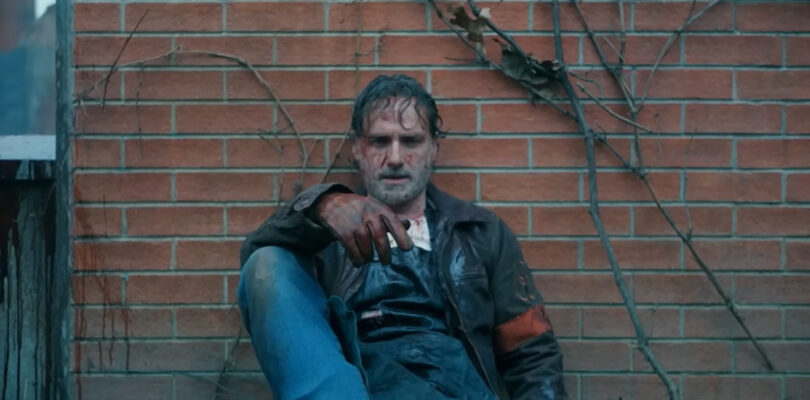TV Series Review
Fourteen years ago, give or take, Rick Grimes walked out of a hospital room and into a scene from a horror flick. The world had gone to rot—literally.
Corpses walked the earth, killing anyone and everyone they found. Those who survived fought over resources, often killing each other in their plight. Rick himself was separated from his wife, Lori, and their son, Carl. But through a grueling journey and undying determination, Rick found his family once again.
Of course, as anyone who kept up with The Walking Dead’s 11 seasons knows, that was just the beginning of Rick’s tale.
Lori died in childbirth. Carl was eventually bitten by a zombie (which survivors call walkers), resulting in a slow and painful death for the young teen. Rick lost count of how many walkers he killed. He gave up trying to keep track of how many human lives he took, too. He lost friends, found love and even had another child, Judith.
Rick’s story ended when he gave up his life to save Judith and his new wife, Michonne, from a herd of walkers. He blew up a bridge. And as far as his friends and family knew, that was the end of Rick Grimes.
But again, as anyone who kept up with the show knows, that was just another beginning.
The Ones Who Live…
Rick didn’t die in that explosion. He was rescued by Jadis, a member of the Civic Republic Military, an alliance of three cities that managed to survive the apocalypse. And for the past five years, he’s been working as a sort of indentured servant for the CRM, unable to contact his family or escape.
Not that he hasn’t tried. Rick would chop off his own arm if it meant he could see Michonne and Judith again…oh wait, he’s done just that. But it’s not enough for an organization that desperately wants to keep him around.
Okafor, one of the CRM’s highest-ranking officers, thinks that the CRM has become corrupt and ineffective. But he believes that someone like Rick—someone who will do whatever it takes to save the world, even at great personal cost—could change CRM from the inside and help create a world worth saving.
Only Rick says he doesn’t care about that anymore. He says he wants to be with his wife and his daughter again. And as hard as Rick is fighting to get back to them, Michonne is fighting equally as hard to find him, too.
But what if Okafor is right? What if getting his family back isn’t enough for Rick? What if he and Michonne have been so changed by this post-apocalyptic world that they don’t know how to live without a fight to the death?
…Become the Walking Dead
Ever since AMC’s The Walking Dead first gored up our screens in 2010, the show (and its multiple spinoffs) has served as an examination of the human psyche. People band together to war against the hordes of reanimated corpses. But then they turn on one another because of greed, anger, envy, even lust.
In the original Walking Dead, Rick used to ask three questions before letting newcomers join his band of survivors. How many walkers have you killed? How many people have you killed? Why?
And undoubtedly, the old Rick wouldn’t allow this new one—nor any of his changed friends—to join the group. They’ve lost count of how many walkers they’ve killed. They’re unsure how many people. And they all know why: because in a kill or be killed society, you do whatever it takes to survive, even at the risk of losing your own humanity. And those who have said different aren’t alive anymore. Now they are the walking dead.
Perhaps this latest spin-off hopes to change that. Perhaps the people who have committed horrendous acts in the name of survival will be redeemed.
But The Ones Who Live itself won’t be.
The Walking Dead was quickly dubbed “the bloodiest show ever seen on television,” and that much hasn’t changed. Between the original series and its spinoffs, an estimated 3,000 gallons of fake blood have been used. Walkers and humans alike are eviscerated in every episode. Children are turned into monsters—either by becoming zombified or by the odious acts they’re forced to commit. We hear horrific stories from folks who manage not to die. And just when you think you’ve seen all the blood Hollywood can manage to scrounge up, someone explodes, leaving their comrades to clean up the entrails.
Language is also a problem for The Ones Who Live, with several profanities, including the f-word and “god–mit,” sprinkled throughout every episode.
None of this should shock those who have kept up with the series thus far—or even those who have heard about it over the past 14 years. But perhaps it’s time to do a little reexamining ourselves. Perhaps instead of giving this show a pass and allowing the story to drag along for another 11 seasons, we can finally put it—and the characters within—to rest.




